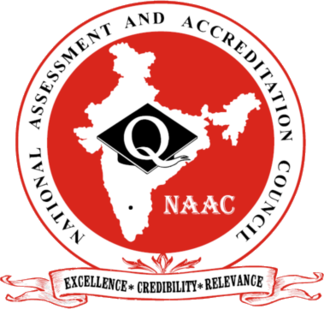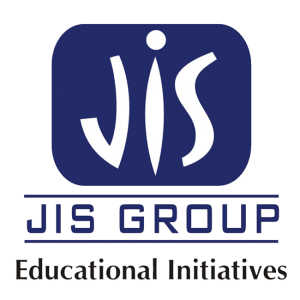
The global healthcare domain is witnessing a profound surge in relevance and demand—hospital management. With the intersection of medicine, technology, policy, and administration becoming increasingly intricate, the role of skilled hospital managers has never been more critical. For students contemplating a dynamic, impactful, and future-ready career, the study of hospital management offers a gateway to transformative leadership in the healthcare ecosystem.
The Expanding Horizons of Healthcare Administration
Healthcare today is not solely about clinical excellence; it is equally about operational efficiency, resource optimization, patient satisfaction, and regulatory compliance. The amplifying complexity of hospitals, multispecialty clinics, and healthcare systems demands astute administrators who can navigate this multifaceted terrain with strategic foresight and managerial acumen. India’s healthcare sector is projected to reach US$ 638 billion by 2030, driven by rising incomes, enhanced health awareness, and greater access to insurance. With this meteoric expansion comes the critical need for professionals trained in hospital administration, healthcare management, and medical facility operations. This shift signals an important realization: effective management can be the silent engine behind exemplary clinical care.
A Career Anchored in Purpose and Innovation
Studying hospital management is not just a prudent academic choice; it is a commitment to societal betterment through organizational leadership. As a discipline, it synthesizes principles of business administration, public health, and policy design, equipping students to oversee the operational integrity of healthcare institutions. A degree in hospital management empowers graduates to take on pivotal roles such as hospital administrator, healthcare operations manager, quality assurance executive, medical practice manager, and patient care services coordinator. These roles are not confined to hospitals alone; they span across pharmaceutical firms, public health organizations, telemedicine startups, health-tech enterprises, and even international NGOs.
At the postgraduate and undergraduate levels, such programs are meticulously curated to provide a robust understanding of health economics, epidemiology, strategic human resource management, financial planning, healthcare law, and accreditation standards. Institutions like Guru Nanak Institute of Technology, which have diversified their academic portfolio to include hospital management, exemplify the progressive vision required to meet the healthcare sector’s changing demands.
Why the Demand for Hospital Managers is Rising
Several converging trends are responsible for the spike in demand for healthcare administrators:
- Privatization and Professionalization: With a growing number of private hospitals and corporate health chains, there is a rising need for professionals who can blend medical insight with managerial prowess.
- Regulatory Frameworks: Accreditation bodies such as NABH (National Accreditation Board for Hospitals) and international benchmarks like JCI (Joint Commission International) have mandated stringent compliance protocols, necessitating trained administrators.
- Digital Health and Informatics: The infusion of AI, big data, and telehealth has introduced a new dimension to hospital management, requiring technical fluency alongside administrative control.
- Pandemic Aftermath: COVID-19 exposed gaps in emergency preparedness, supply chain resilience, and hospital governance—areas that future hospital managers are now being trained to fortify.
Skill Development with Strategic Advantage
Students trained in hospital management develop a suite of highly transferable competencies: leadership, systems thinking, critical decision-making, conflict resolution, and data-driven planning. These skills are crucial not just within healthcare but also in allied domains such as insurance, consulting, policy advocacy, and healthcare IT. Furthermore, hospital management fosters interdisciplinary fluency—the ability to communicate effectively across clinical, administrative, financial, and technological spheres. This makes graduates particularly valuable in an era that prizes cross-functional integration. The curriculum at forward-looking institutions like Guru Nanak Institute of Technology reflects this ethos, integrating practical training modules, case-based pedagogy, industry immersion, and collaborations with healthcare entities. These elements ensure that students are not merely academically proficient but also industry-ready.
A Global Gateway with Local Relevance
One of the understated merits of a hospital management degree is its global portability. The challenges faced by hospitals in India—resource constraints, patient load management, digital integration—mirror those in developing economies worldwide. As such, professionals trained in this field often find opportunities abroad, particularly in Southeast Asia, the Middle East, and Africa, where healthcare infrastructure is scaling rapidly. Simultaneously, hospital managers play a critical role in the public health apparatus within India, partnering with state and central governments in implementing schemes such as Ayushman Bharat, National Health Mission, and urban health programs. Thus, a graduate in hospital management can traverse both global and grassroots impact spectrums.
Navigating a Postgraduate or Undergraduate Choice
For students pondering whether to pursue hospital management as a standalone undergraduate degree or as a postgraduate specialization, the answer lies in their career aspirations. Undergraduate programs lay a strong foundation in administrative sciences, while postgraduate degrees often allow for deeper specialization in areas such as hospital planning, health informatics, or quality control in healthcare. Guru Nanak Institute of Technology , for instance, has crafted its hospital management programs to balance theory with pragmatism. The curriculum encourages research, project work, and exposure to real-world hospital environments—elements that substantially enhance employability and leadership readiness.




